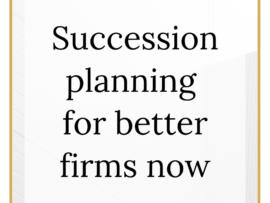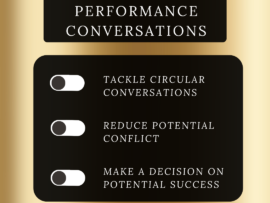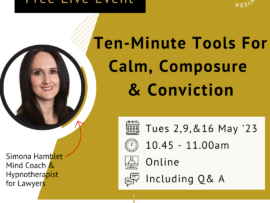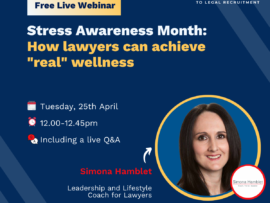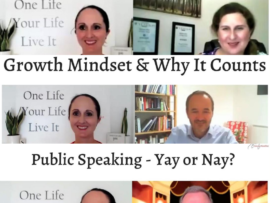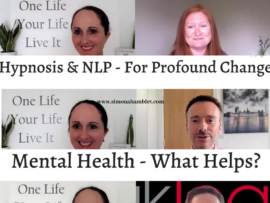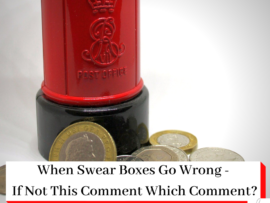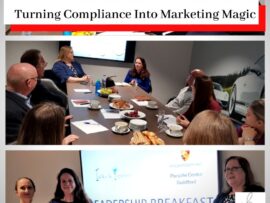Top Tips To Keep Your Marketing In-House
0 CommentsMarketing 101 – What to Keep In-House (and do it well) and What to Outsource
Want to know what marketing to keep in-house, or what to outsource?
What you can use to make you feel more confident, with your own business or firm’s marketing?
And, most importantly, what are the biggest makes to avoid?
If so, here are some of the TOP TIPS taken from Rich Dibbins (Staxton Digital), our expert guest speaker, at today’s Talks and Tipples Leadership Breakfast.
TOP TIPS
SEO (SEARCH ENGINE OPTIMISATION)
In-House
SEO –Using SEO in your copy is key to improve your reach for organic searches. Organic searches are the results that come up, after the sponsored ones, when you search on Google).
KEYWORDS – for better SEO you need to use keywords specific to your business, and clients. So that your website will be found when clients are searching for your types of services or products on Google (or Bing). These keywords should be included in your page content (the copy).
PAGE CONTENT– Each page should be about 750 words long, with your keywords in it. A good page structure of the content is 1. What issue/problem does your client have 2. What is your solution 3. Any FAQ. Google uses FAQ to answer common questions in searches and it can improve your ranking. Google may even show your answers in the search results. Ensure you have What Is and How To in your pages. Plus a separate FAQ page.
GMB – Ensure Google My Business is set up (the box on the right when you search in Google for your site). If setting this up for the first time, keep an eye out for the verification card in the post. You will need this.
Outsource
SITE STRUCTURE – Get an expert in! Never dabble as it can’t easily be rectified. Before you do outsource. Ask for referrals, use someone with experience in your industry, and complete a website review. SEO is a long term strategy (3-6 months). If you are looking for quick results, use PPC. And…don’t believe anyone that promises a #1 spot on Google organic rankings.
CONTENT – whilst you can do it yourself, it takes time, and this includes learning what content is best. At some point, you may therefore want to outsource it.
Key Mistakes
COPYING – Aside from any legal issues, don’t copy your competitors’ content. Google penalises the website of the person who uploads the duplicate material. In addition, just because your competitor has it, it doesn’t mean it is working.
DON’T DELETE – Avoid deleting any website pages, they may have traction with Google! Make sure any links are still working when you do hide or change pages.
NICHING – A niche is specialist. If you do genuinely niche, beyond being a family law firm, or the only law firm in an area, make sure your content covers that niche. Demonstrate how you niche.
PPC (PAY PER CLICK)
In-House
PPC – Creating paid (sponsored) ads on Google and social media platforms can generate quicker wins. With PPC you can set upper limits on your spend. Your content must be focused, include calls to action, and you must choose your audience wisely Both to ensure you get the results you want and that the spend is effective. The spend should be aiming for £1 spent, for £7 return on your spend.
LANDING PAGES – PPC Ad’s should direct you to landing pages. Keep the information short and don’t ask for too much information. Name, email, and a telephone number is enough, otherwise, they will be put off. You can gather the other information later.
Outsource
HIGHER SPENDS – If you are spending over £500 you want a PPC manager. They typically charge 12-15% of PPC spend, and £100-£250 a month as a fee. Again, to optimise PPC working for you, even with lower spends, a PPC expert will help.
SOCIAL MEDIA
CLUBHOUSE – a recent addition to social media. This is a platform where you can create a virtual stage for talks. It is audio only, currently only for Apple users, and by invite only. Whilst it looks promising, currently, they have serious security issues. These include full access to your phone book for their invite use, in addition, third parties have been able to record the talks, and stream them. Until then, it may be best avoided.
SOCIAL MEDIA PLATFORMS – LinkedIn remains key for most businesses. The other social media platforms depend on your preference and your market. Don’t stretch yourself too thin. Focus on a few, and then add to them later. The content differs for each, so if it isn’t working, it is typically your content (rather than the platform).
CONTENT – Avoid continuous selling. People will unfollow. Use a 3-2-1 rule. 3 posts sharing content related to your services or areas of interest (but not selling). 2 posts sharing non-service related content, but interesting to your clients. 1 post related to your actual services/sales related post.
FREE TOOLS TO USE
GOOGLE ANALYTICS – A great tool to gather digital marketing information. Here are a few useful parts:
– Acquisition Tab/All Traffic/Channels/Source and Medium – shows where your website traffic is coming from
– Behaviour Tab – this will show your site speed, site content, and which are your popular pages
– Google Ads – as it says, this tracks your Google Ads
– Google Tag Manager – ensure this is switched on if you are doing any kind of PPC to keep track
GOOGLE TRENDS – a great site for hot topics, or searches, which lets you know how those terms are doing, and keep you updated.
TRELLO – helpful when creating a marketing strategy to ensure you stay on track. You can use Trello or another task/project management app, to help manage your marketing project and keep a focus on it.
HOOTSUITE – a great tool that allows you to create your social media posts, which will then be automatically sent out, at the time you allocate. This saves you having to personally post every day, since you can block create. You can also use the RSS function (cautiously) so that if you have a great industry-specific site ie a publication, you can have RSS repost that content, perhaps once a day. You clearly must ensure its quality, relevance, and that you have other content/posts being generated by you at the same time.
CANVA – a well-used resource for creating easy posts, pdfs, leaflets, for all your social media and marketing material.
HUBSPOT – an extremely useful CRM tool. Keep on top of your potential clients, contacts, and existing ones.
MAILCHIMP – excellent for creating and sending newsletters, with up to 2,500 email addresses permitted, until you must pay. They are also GDPR appropriate.
GRAMMARLY – add it to your browser as an extension, to improve spell checks & grammar checks, as you write your social media content, responses, (& other content). Similar to Word, it puts a red squiggle underneath any typing errors.
KEY MISTAKES
FAILURE TO MEASURE – Use the tools to learn from. The date and benchmarks are there to help you to tweak and change, rather than to give yourself a hard time.
USING EXPERTS WHEN NEEDED – if your marketing isn’t getting results or you are looking at higher spends, the investment may well be worth it.
NEGLECTED WEBSITES – There are two types of website 1. Brochure Websites (look great and there to show presence) 2. Lead Generation Websites (less pretty but content-rich with calls to action (CTA’s). If the latter, ensure you are keeping it up-to-date. If you create a lot of blogs, for example, drip feed them onto your site. This allows Google’s bots to see that your page is still relevant.
SECURITY – Ensure your website shows https:// , otherwise users will get a warning message, and you will rank lower on Google.
And that is a wrap! I hope you found these digital marketing tips useful.
If you would like to come to future Talks & Tipples Leadership Breakfast. They are free and designed for senior managers, business owners, or SME CEO’s, who have an interest in leadership skill, personal growth & business development.
I am also about to launch a Hot Topics for Lawyers breakfast, for Firm Owners, Senior Partners, & Managing Partners.
Get in touch to find out more.


